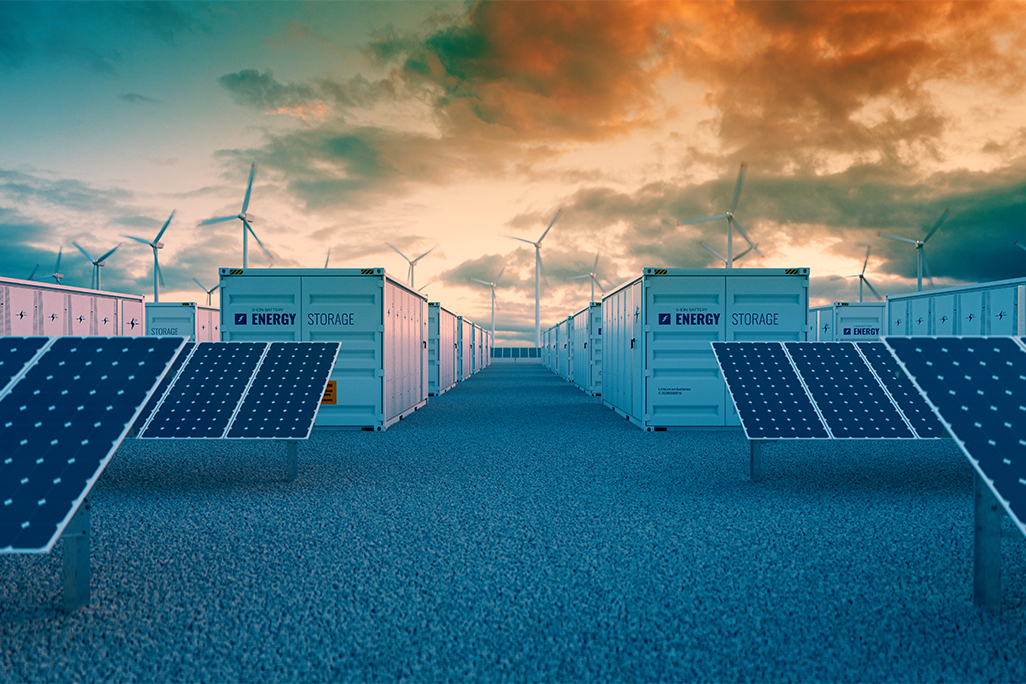The Energy Transition | Ofgem warns of winter gas shortages
Published on 11th October 2022
Welcome to our top picks of the latest energy regulatory and market developments in the UK's transition to net zero.

This week we look at possible winter gas shortages, new government funding to improve energy efficiency, Ofgem exploring alternatives to RIIO and the UK's first nuclear fusion reactor site.
Ofgem warns of gas shortages as it fast-tracks grid code modification
Against a backdrop of gas shortages caused by the Ukraine conflict and wider supply issues across Europe, Ofgem has changed the status of Balancing and Settlement Code (BSC) modification P448 – Mitigating Gas Supply Emergency Risks – to 'urgent' after the matter was raised by SSE on 28 September 2022.
The modification seeks to protect generators from excessive imbalance charges during a gas supply emergency. If gas-fired power stations that produce electricity (as the largest gas users connected to the system) have their gas supplies limited during a supply emergency, they would be exposed to imbalance charges if they cannot generate and deliver power they have sold ahead of time. The imbalance charges incurred in these circumstances are likely to be high, as other plants would have to be instructed to replace the lost power. These high imbalance prices and large imbalance volumes could result in potential insolvency of gas-fired generators. The proposed changes to the BSC would address the high imbalance charges and credit cover requirements risks by allowing firm load shedding instructions to be settled as electricity bids, which would be moderated by a new panel committee.
National Grid has also issued a warning over Britain's energy consumption this winter, proposing to offer financial incentives to domestic customers with smart meters and business to reduce power usage during peak times.
Although 'cautiously confident' that there would be adequate supply, National Grid ESO has said homes in the UK could face three hour power cuts in the extreme worst case scenario if gas shortages leave generators without fuel. Although customers would be warned about these blackouts at least a day in advance, the proposed regional rolling outages would occur at peak times between 4pm–9pm. The incentive offered by National Grid could be implemented in the event of a slightly better supply scenario, in which gas-fired power plants would be able to operate but could not secure sufficient electricity imports. The plans aim to reduce electricity demand by at least 2 GW by paying households more than £10 a day to reduce electricity usage during peak hours.
Government pledges £1.5 billion to improve energy efficiency
The government has pledged £1.5 billion in support measures to help improve the energy efficiency of 130,0000 low-income households. Under the Social Housing Decarbonisation Fund (SHDF) and Home Upgrade Grant schemes, local authorities and social housing providers will be permitted to submit bids for funding to install efficiency measures such as external wall and loft insulation, energy efficient doors and windows, heat pumps, and solar panels. The plans are part of the government's Help to Heat schemes, which consist of £12 billion of funding to help low-income and vulnerable households with their energy bills. The measures build upon the introduction of the £179 million Wave 1 of the SHDF in February 2022, which aims to upgrade 20,000 social housing properties.
These measures have been introduced to improve the energy efficiency of homes and cut energy bills by £400 to £700 per home. The SHDF will be made available for social housing with an Energy Performance Certificate rating of D or lower. The government will make £800 million available to 100,000 social homes, although funding will have to be matched by those applying, which will double the total available investment in energy efficiencies to £1.6 billion. The fund is part of a £3.8 billion government commitment to improve the energy efficiency of social homes over a 10 year period.
The Home Upgrade Grant will be available to those living in privately owned off gas-grid homes, helping those who are most vulnerable to fuel poverty. This funding will help install efficiency measures in 30,000 properties, through an available fund of £700 million, and a total package of £1.1 billion.
Ofgem explores alternatives to RIIO and proposes increasing upfront spending allowances by almost £375 million
Ofgem has recently published two open letters to industry, the first of which requests input on what the regulatory framework for energy and gas should look like in the future. This letter highlights the need for an overhaul of the regulatory system, in order to account for the rapid changes in the energy market. The second open letter proposes an increase to upfront spending allowances by almost £357 million under the RIIO-ED2 framework in response to changes to the charging arrangements for new connections which are set to apply from April 2023.
Ofgem announced in May 2022 that it would be lowering charges for connecting customers, meaning they will no longer contribute to reinforcement costs. Ofgem has recognised that this will pass this cost on to Distribution Network Operators (DNOs). Ofgem is proposing to offer ex-ante allowances of almost £357 million to DNOs to assist with these costs. DNOs had originally suggested the changes to charging arrangements could cost them near to £1.1 billion for the five year period of RIIO-ED2. Ofgem has not matched this figure however, as it is concerned that DNOs are unable to accurately assess the costs they will incur. The ex-ante funding proposed would apply for the first two years of RIIO-ED2, after which Ofgem suggests two windows (January 2025 and January 2027) in which DNOs could request additional funding.
RIIO (Revenue = Incentives + Innovation + Outputs) has been used to set the price control across each gas and electricity network since 2013, with an updated framework (RIIO-2) introduced in 2021. RIIO-ED2 is currently being finalised for the period between April 2023 to March 2028. Despite being a longstanding means of price control, Ofgem has highlighted that the RIIO-2 processes concerning the structure and form of the price control and the periodic review process are just a few of the specific areas that need to be reformed.
Ofgem suggests that a new regulatory framework is needed to accommodate the rapid changes to energy supply and demand, the need to reach net zero targets and the development of new sources of power. As a result, energy storage and infrastructure will need to change and the regulatory system must account for this.
Ofgem notes that setting price controls periodically, as the RIIO framework currently does, is good for creating stability and predictability. However, due to current high levels of uncertainty around security of supply, it may no longer be appropriate to fix upfront aspects of operations, maintenance and new investment. Ofgem suggests that regulation needs to allow for quicker and more flexible decision-making. RIIO-2 does contain some built-in flexibility for funding net zero pathways, but it lacks the ability to change regulation with speed.
UK's first nuclear fusion reactor site chosen
The UK government has announced that Nottinghamshire has been chosen as the site for the UK's first prototype nuclear fusion reactor. West Burton A is currently a coal-fired power station run by EDF, which is set to be decommissioned in March 2023. The government hopes that West Burton A will house the Spherical Tokomak for Energy Production (STEP), the UK's first prototype fusion reactor, which is targeted for completion by 2040. It is hoped that this will create thousands of jobs throughout the project's construction and operational phases, and will encourage further investment into the area. The government will provide £220 million in funding for the first phase of STEP. The UK Atomic Energy Authority aims to produce a design for the project by 2024, with construction starting as early as 2032.
The government hopes that nuclear fusion could provide the means of ending the UK's use of hydrocarbons and provide a clean energy source of energy, while also contributing towards greater energy security. Another benefit of nuclear fusion is the minimal concerns about radioactive waste, one of the key downfalls of nuclear fission. Nuclear fusion is however a complex process, and due to the extreme heat that is required, the government has acknowledged that there will be technical challenges in realising the project.



